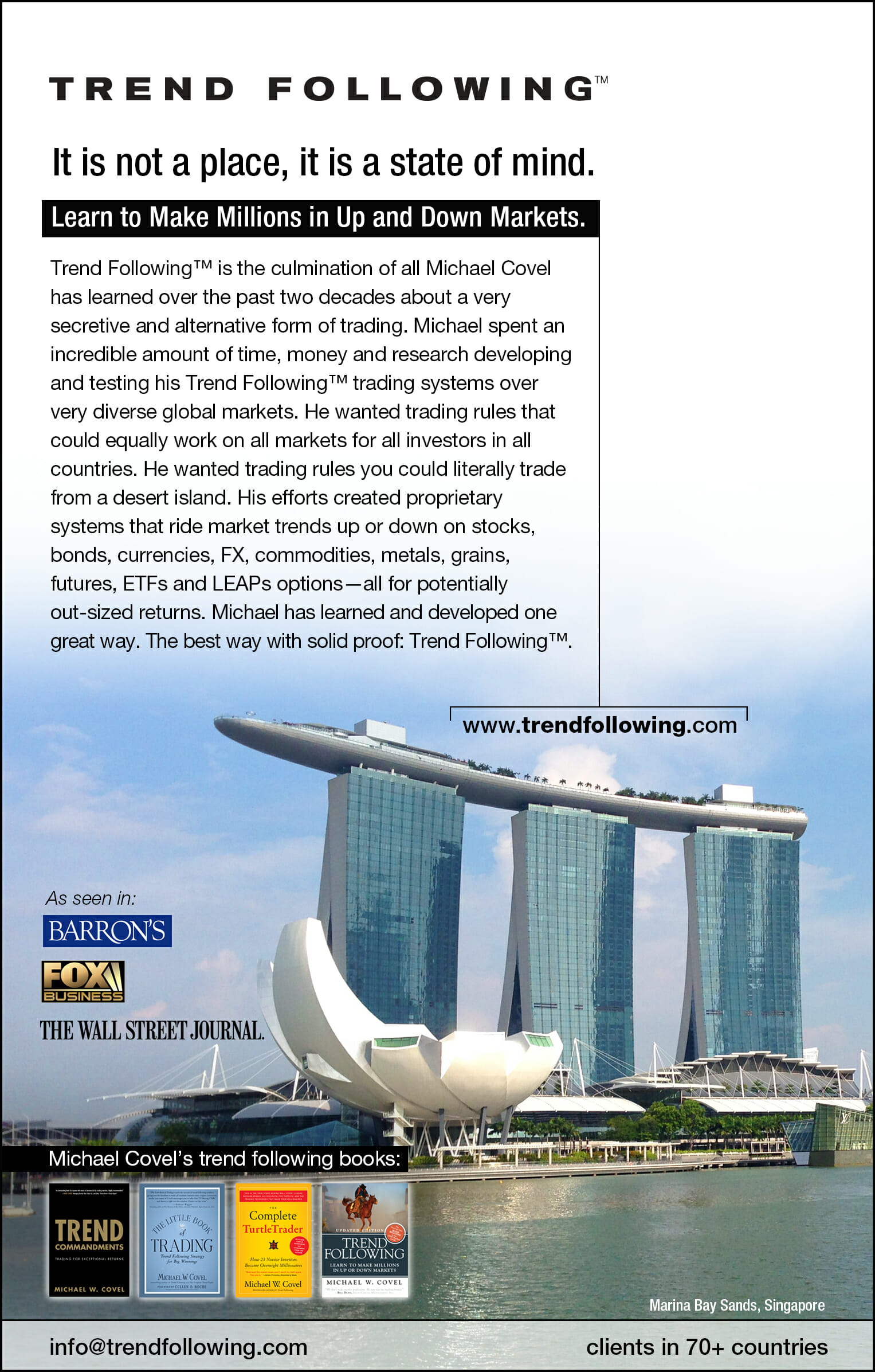One of the best books covering the history of risk in society is Against the Gods: The Remarkable Story of Risk, by Peter L. Bernstein. Bernstein delves into the trading psychology (otherwise known as behavioral finance) all trend followers live and die by:
Imagine that you are on your way to see a Broadway play for which you have bought a ticket that cost $40. When you arrive at the theater, you discover you have lost your ticket. Would you lay out $40 for another one? Now suppose instead that you plan to buy the ticket when you arrive at the theater. As you step up to the box office, you find that you have $40 less in your pocket than you thought you had when you left home. Would you still buy the ticket? In both cases, whether you lost the ticket or lost the $40, you would be out a total of $80 if you decided to see the show. You would be out only $40 if you abandoned the show and went home. Kahneman and Tversky found that most people would be reluctant to spend $40 to replace the lost ticket, while about the same number would be perfectly willing to lay out a second $40 to buy the ticket even though they had lost the original $40. This is a clear case of the failure of invariance. If $80 is more than you want to spend on the theater, you should neither replace the ticket in the first instance nor buy the ticket in the second. If, on the other hand, you are willing to spend $80 on going to the theater, you should be just as willing to replace the lost ticket as you are to spend $40 on the ticket despite the disappearance of the original $40. There is no difference other than in accounting conventions between a cost and a loss. Prospect Theory suggests that the inconsistent responses to these choices result from two separate mental accounts, one for going to the theater, and one for putting the $40 to other uses–next month’s lunch money, for example. The theater account was charged $40 when the ticket was purchased, depleting that account. The lost $40 was charged to next month’s lunch money, which has nothing to do with the theater account and is off in the future anyway. Consequently, the theater account is still awaiting its $40 charge.
Trend followers do not allow themselves to create these artificial accounts. They always work to eliminate discretion by relying on the pure numbers. Great traders know the secret to great trading is their own objectivity.
Trend Following Products
Review trend following systems and training:

More info here.
